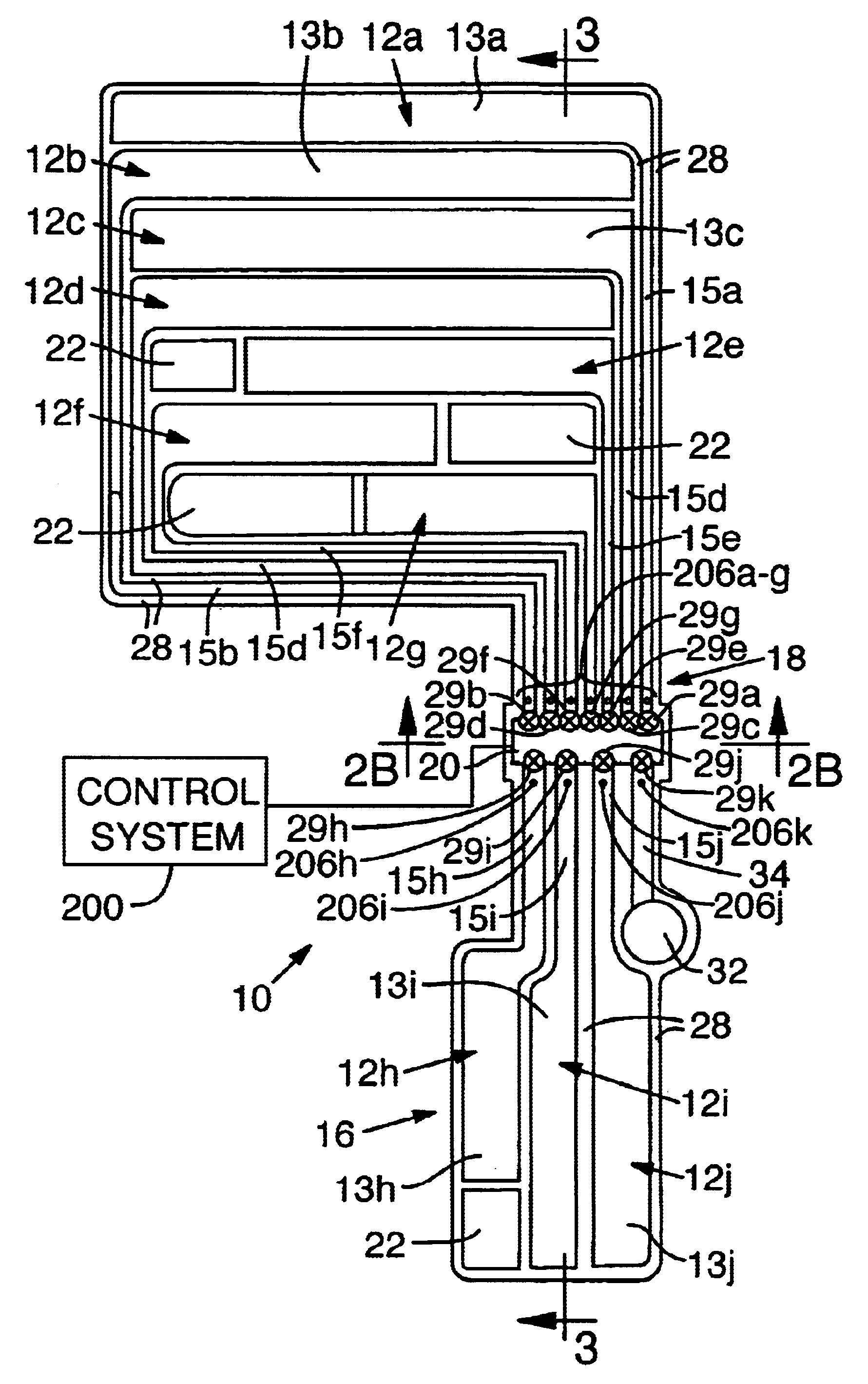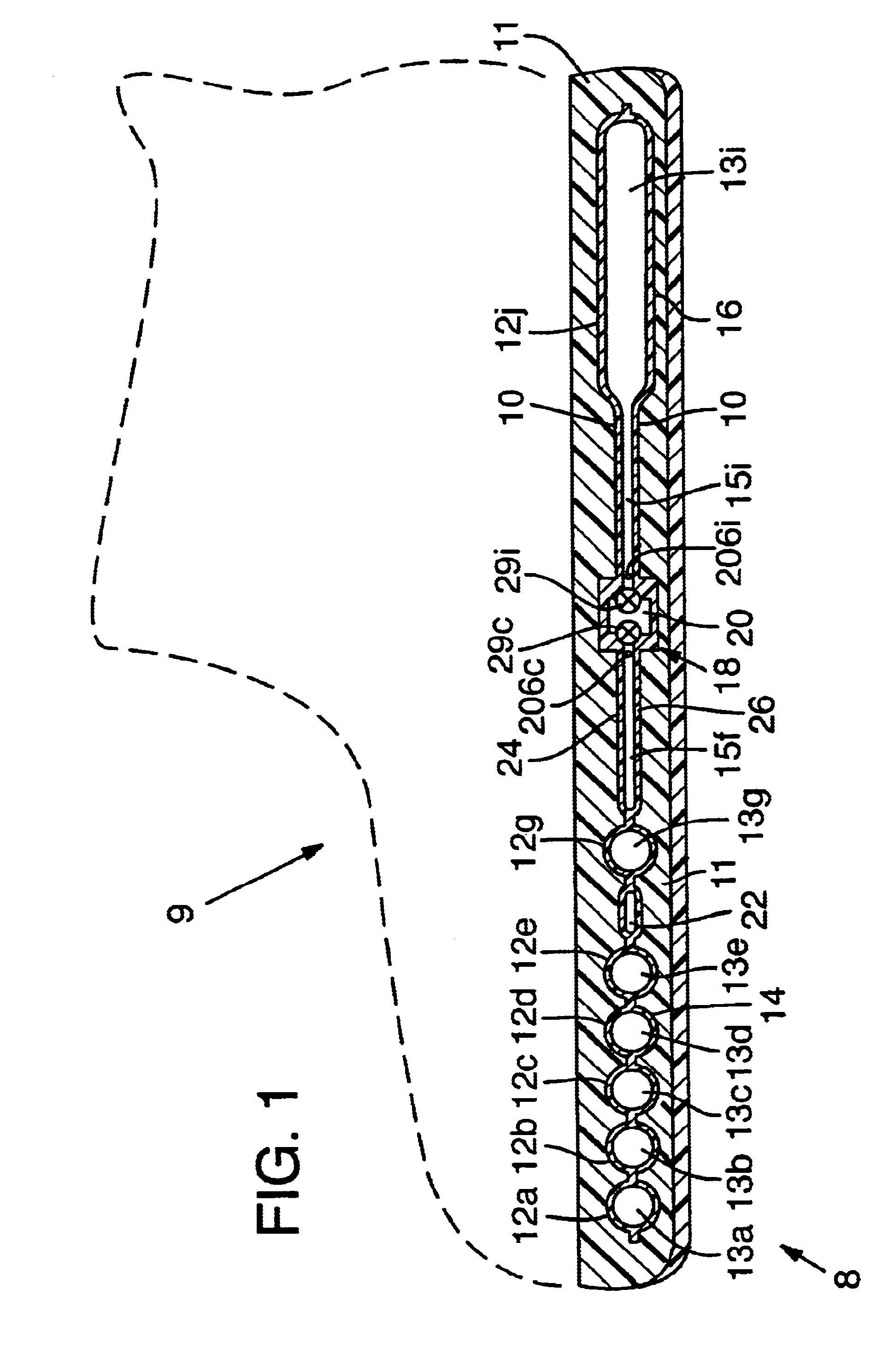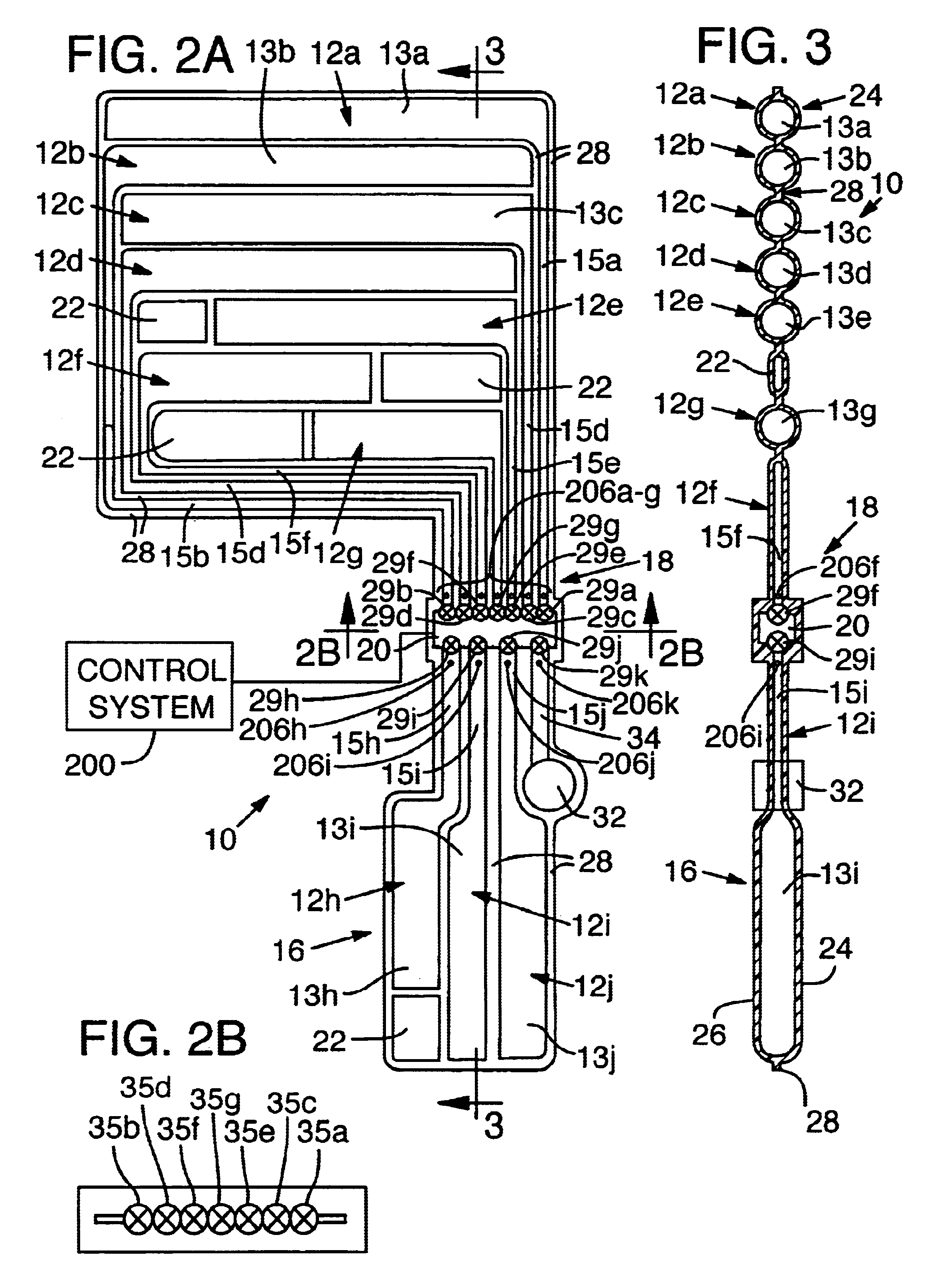Dynamically-controlled cushioning system for an article of footwear
- Summary
- Abstract
- Description
- Claims
- Application Information
AI Technical Summary
Benefits of technology
Problems solved by technology
Method used
Image
Examples
Embodiment Construction
[0032]A cushioning system 8 for use in an article of footwear 9 is disclosed in FIGS. 1 to 9. The cushioning system 8 includes a bladder 10 having a plurality of chambers 12a-j in fluid connection with each other at plenum 20 with each chamber entrance having an individually operable regulator, such as a modulating valve 29. A control system monitors pressure in the chambers and dynamically operates the regulators to change the level of fluid communication between the chambers, thereby changing their respective pressures, to optimize performance of the bladder while the article of footwear is being worn.
A. Bladder Assembly
[0033]In a preferred embodiment of the invention (FIGS. 1-3), a bladder 10 is a thin, elastomeric member defining a plurality of chambers 12 or pockets. The chambers 12 are pressurized to provide a resilient support. Bladder 10 is particularly adapted for use in the midsole of the shoe, but could be included in other parts of the sole or have applicability in other...
PUM
 Login to View More
Login to View More Abstract
Description
Claims
Application Information
 Login to View More
Login to View More - R&D
- Intellectual Property
- Life Sciences
- Materials
- Tech Scout
- Unparalleled Data Quality
- Higher Quality Content
- 60% Fewer Hallucinations
Browse by: Latest US Patents, China's latest patents, Technical Efficacy Thesaurus, Application Domain, Technology Topic, Popular Technical Reports.
© 2025 PatSnap. All rights reserved.Legal|Privacy policy|Modern Slavery Act Transparency Statement|Sitemap|About US| Contact US: help@patsnap.com



